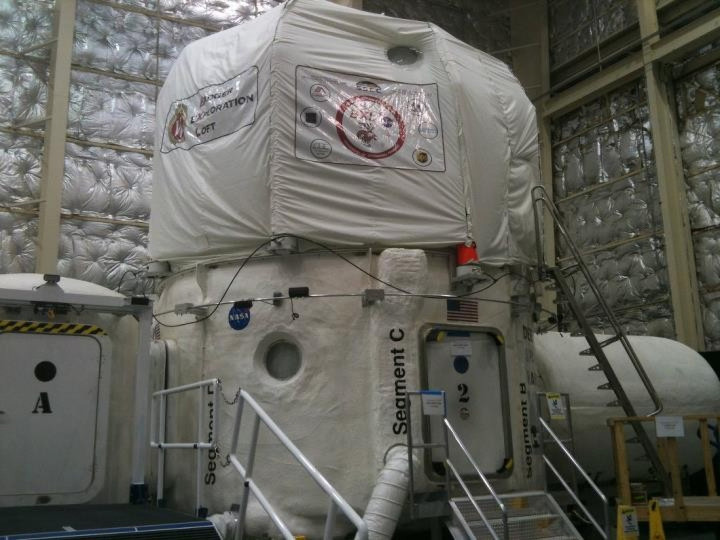Students To Help Design Deep Space Habitat, NASA Competition

College students have until May 2 to help NASA design a deep space habitat, thanks to a new competition.
NASA is hosting the 2013 Exploration Habitat (X-Hab) Academic Innovation Challenge that tests undergraduate and graduate students to design systems for potential use on a deep space habitat prototype.
Interested students can view more information and eligibility requirements here: http://spacegrant.org/xhab.
Winners are expected to receive between $10,000 and $49,000 to produce functional products to be delivered by June 2013.
Students will play a vital role in our critical early system planning and development, Alvin Drew, NASA astronaut and project manager at Johnson Space Center, said in a statement. Their designs could become the basis for the concepts and technologies that will make up the habitat we eventually send to space.
The challenge was first held in 2011 when NASA solicited designs for an inflatable space loft, a place where astronauts can sleep, eat and live while in space. The University of Wisconsin-Madison beat out two other teams and tested its loft as part of NASA's Desert Research and Technology Studies simulated asteroid mission in August and September.
The 2012 challenge called for designs for plant growth technologies. NASA funded four schools to build their designs, which will be tested in August.
NASA announced the 2013 challenge Tuesday and called for designs on various technologies such as solar arrays, medicine systems and food production.
X-Hab is designed to attract students in science, technology, engineering and mathematics by providing them with real-world challenges, and helps NASA engineers through the development of novel technologies, NASA said in a statement.
The NASA team is putting a great deal of responsibility on the students, and in turn gives the students a bigger stake in the future development of space technologies that likely will become heritage to actual systems and technologies that will be flown in space in the years and decades to come, NASA says in the challenge description.
© Copyright IBTimes 2024. All rights reserved.





















